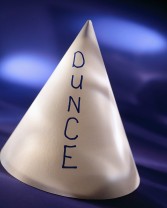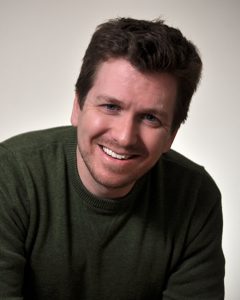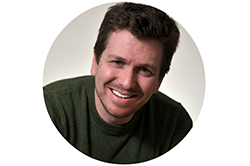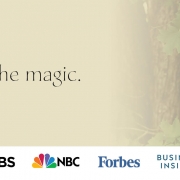Even editors need editing
There’s a new red pen in town.
Scott D. Southard is the latest and greatest to join awesomeness with us at RebeccaTDickson.com. Why? Because he’s brilliant. Obviously. And because I am but one person and cannot keep up with demand.
Scott’s a professional editor, the author of six books (one of which I had the pleasure of editing when I launched this biz), and works with authors all over the country. And now he’s available to help YOU whip your manuscript into shape. I’m still here. I’m not going anywhere, actually. But I need extra hands (and an incredible editing mind) around here. Too many of you love us. Such a difficult problem to have. Said no one ever.
Anyway, say hi to Scott. Visit his website. Check out his books. Keep him in mind for editing. And read below. It’s him, telling all of you how we met.
xo
The Necessary Humbling of Editing
 A lot of fantasies, daydreams and rainbows cloud the world of writing. It’s not surprising. Actually, it’s completely natural since we spend so much of our time making up stories as writers. Why wouldn’t we have stories about the stories?
A lot of fantasies, daydreams and rainbows cloud the world of writing. It’s not surprising. Actually, it’s completely natural since we spend so much of our time making up stories as writers. Why wouldn’t we have stories about the stories?
Have you ever seen that scene in a TV show or movie where a writer finishes a book or script? The writer may raise his hands in triumph over an old typewriter or do a little dance, then we jump forward in time to their inevitable success.
We don’t see the struggle of getting the book out, finding an audience, working with an agent or publisher or, more importantly, editing. And let’s be honest, editing is not as exciting as the victory dance of a finished book, or the sparks of coming up with ideas around a first draft.
Like I said, it’s a fantasy. I have even been known to say much of the art around true writing happens in the editing. It is there that a work is fine-tuned, perfected. This year, I worked with a series of different editors. First for my novel, A Jane Austen Daydream (which was published by Madison Street Publishing) and then for my novel Maximilian Standforth and the Case of the Dangerous Dare.
So why do I love editing so much? Because I learned about its importance the hard way. Yes, I have an editing and writing horror story, and I am about to share it. Be prepared, this is about to haunt you like a poltergeist… a writing poltergeist.
My Horror Story
I entered the first year of Amazon’s Breakthrough Novel Award. For those who don’t know, this is a contest Amazon holds each year to promote CreateSpace and the idea of an author community, since a good part of the contest is writers reviewing each others’ works. To be honest, I could write an entire post on why I think this contest is badly designed (and promotes the questionable practice of review exchanges and fakeries), but that’s for another time.
One of my books was chosen that year to go onto the next round, which meant a sample was available to the public (and other contestants) for review. I was “lucky” to have my book selected to be reviewed by an actual critic from Publishers Weekly.
Now here comes the horror story. The Publishers Weekly reviewer treated my book as though it was a final published work, not a draft of a book in a contest. Consider that.
So instead of reviewing the plot, the characters, the themes, etc., the reviewer pretty much spent all their words attacking my grammar.
It is a draft of a book in a contest, you jackass reviewer. What did you expect?
Okay, take a deep breath, Scott. I still have some issues there, it seems.
Well, I was so embarrassed by the reviewer, I requested my work be removed from the competition and taken off the Amazon page – just so I could save that blasted unfair review from tainting my book for years to come.
And that is why I will always use an editor.
The Three Kinds of Editors
For the editing of Maximilian Standforth and the Case of the Dangerous Dare, I worked with Becky T. Dickson and the experience was great. She is the kind of editor I appreciate. In other words, she actually read the book (experiencing the book as a book) while also catching editing mistakes, repetitions and writing errors.
See, I’ve found there are three different kinds of editors out there:
- The Clones. We all know these editors. We give them some writing and they return it covered in red ink, every word and sentence changed. These editors are dangerous in my opinion since they are (probably without realizing it) changing the voice of the author from their own to… well, the editor’s voice. And another clone is born.
- Yellow Brick Road. These are the editors I like to work with, like Becky, they recognize your book as a book, catch mistakes, but don’t edit to the point of changing your voice. They leave it as your book, but better and cleaner. If you work with an editor like this, stay on the path to the end. You will arrive at the book you want.
- Too Nice For Their Own Good. These editors will make you feel great about yourself. They will pat you on your back, but they will miss so many overarching mistakes, just merely scanning for grammar and spelling. There is even a good chance they won’t really even read your book, because they’re too focused on just looking for common errors. Side note: When you ask a family member or friend to edit your book, chances are you will get a manuscript back like this. Oh, it feels nice, but it will never be enough. Never ever.
Do yourself a favor, do the research to find the best editor for you and your book, and save the victory dance for later.
My Editing of Maximilian
 Working with Becky was a lot of fun. She has a very “bold” way of editing, calling a spade a spade… No, better yet, calling a spade a f*cking spade.
Working with Becky was a lot of fun. She has a very “bold” way of editing, calling a spade a spade… No, better yet, calling a spade a f*cking spade.
Want another reason why it is important to have an editor? Well, the first thing Becky noticed is I misspelled Maximilian’s name. If you heard a loud “thump” noise coming from Michigan a few months ago, that was the sound of my head hitting my desk.
She was right. I thought I was using the same spelling as Daphne Du Maurier did in Rebecca, but I wasn’t. And from that moment of startlingly revelation we were off.
Becky has a nice way of doing this, using bold and highlighting to draw attention to her changes and asking the occasional question. One thing I appreciated is she was able to point out repetitions in my writing. All writers do this. It’s not surprising. We get stuck on a certain expression or word and we run with it, feeling it as natural as the pretzels and coke nearby the computer as we type. (Well, that may be just me).
One thing Becky did that I found interesting and new was pointing out each time I used “There is” at the start of a sentence. Now, the funny thing is my first reaction was to feel protective of “There is.” Heck, one of my favorite lines in Hamlet begins that way:
There’s a special providence in the fall of a sparrow.
That’s Shakespeare, people.
But in changing a sentence away from it, I noticed the descriptions improved, became richer. So I made some of those changes.
That is not to say I made all of the changes the editor requested. A writer shouldn’t do that. They are suggestions. For example, Becky doesn’t like some of the cliches I used in the book, but they are intentional. It is a period pulp work in its essence (hiding a very experimental book of literature underneath), so a book of that style would have cliches like that. It’s part of the norm.
But that is what an editor is for, not just for catching our writing “oops” moments, but also for making us rethink our work. To make it stronger. And I saw that in every finished chapter Becky emailed to me.
Power of Second-Guessing
Sometimes I wish life could automatically come with an editor. They could review each sentence I am about to say aloud or correct emails and tweets. I wish I could trust my brain, but I have learned a long time ago not to. It seems to enjoy getting me in trouble.
Right now, I’m in the process of deciding what to do with the new novel I wrote last year, Permanent Spring Showers. Do I try the traditional big publishing road? Do I find an agent? Do I find a smaller publisher? Go indie? Or do I self-publish and just get it out there?
I haven’t decided yet. But as I look over my manuscript, the one thing I am certain of is I need an editor.
I’m sure your book does too.
*
 Need an editor? Scott D. Southard’s services are exclusively available via this site. When you inquire, ask for him.
Need an editor? Scott D. Southard’s services are exclusively available via this site. When you inquire, ask for him.
Scott is the author of the novels A Jane Austen Daydream, Maximilian Standforth and the Case of the Dangerous Dare, My Problem With Doors and Megan. You can find them via his Amazon author page or you can pick up a copy of Doors and Megan on Google eBooks.
Scott is also a busy blogger, you can follow his entertaining (and insightful) posts at sdsouthard.com.








Yup, the Beckster is my editor too, and she rocks. I call her “Bexter” because she kills prose that really doesn’t deserve to live. (Hopefully, the “Dexter” reference is in context for you 🙂 )
(And I’m in the middle of reading Max Standforth; it’s a hoot–actually been reading it for a while, but since I’m closing in on the finish line of my own novel–you know how it is . . .)
Regards, and welcome aboard.
I have a baby girl; her name is HORIZON (always in upper caps cuz she’s cool like that) and I need to put her in really safe hands. She is 99,000 words and I love her so much. Editors hold her carefully. She loves to be cradled on a couch, close to the chest.
I enjoyed reading this article – as an editor, it’s always good to read about how people experience the other side of the coin. I also recommend to editors that they write something and be edited themselves. I was horrified by my defensive attitude to this when I had my own book edited, but it taught me a lot about how to relate to my own clients!
YES! As a reporter, I got used to being edited real quick. But it was hellish at first.